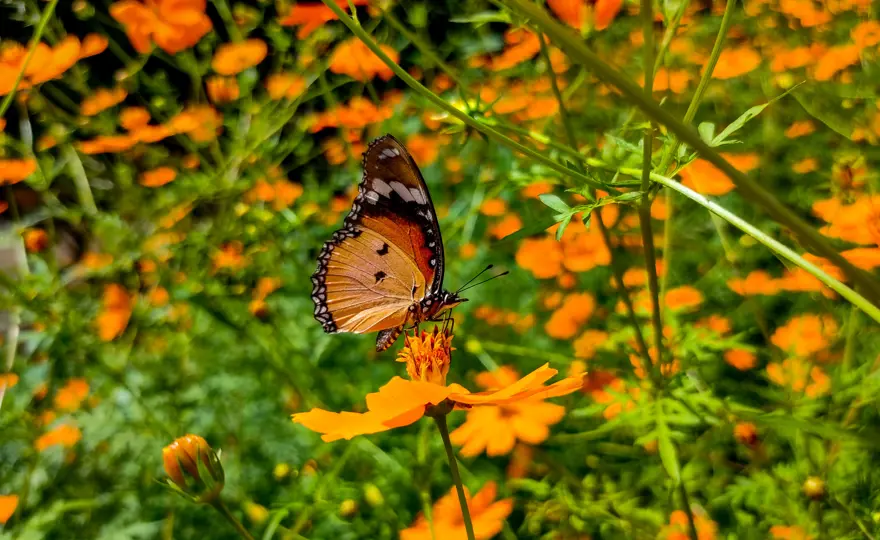ClientEarth Communications
27th November 2020


In the Eastern part of Ghana lies the Atewa Range Forest Reserve, internationally recognised as one of the most important natural resources to protect in Africa. But for decades the range has been facing degradation due to the long-term effects of timber harvesting, hunting, and encroachment of farms and gold mines.
This degradation would be made worse by plans to mine bauxite within the Atewa forest. In 2018, the Government of Ghana signed a deal with the People’s Republic of China that involves hydropower company Sinohydro building infrastructure across Ghana through a loan to be repaid with receipts from Ghana’s refined bauxite. Atewa Range Forest Reserve is earmarked as one of the sources of the raw materials.
Bauxite mining in the range presents a threat to its biodiversity, and endangers the rights of communities who depend on the forest for food, livelihoods and clean water.
In response, local people launched a civil action in January this year. Led by national environmental organisation A Rocha Ghana, they allege that plans to exploit the Atewa Range for bauxite violate their constitutional rights to life and dignity. This includes, they argue, the right to a clean and healthy environment and the right to have the environment protected for future generations.
ClientEarth is helping to support the civil action, working closely with our partner A Rocha Ghana. In this piece, we outline the importance of Atewa Range, the key components of the civil action, and the global campaign to protect Ghana’s most precious national resource.
Atewa Range is a key ecosystem in West Africa. Spanning 26,000 ha, it is classified as a Globally Significant Biodiversity Area and as a protected forest reserve, which means all mining activities are supposed to be excluded.
The forest range boasts significant plant diversity, with at least 1100 plant species. It is home to some 100 threatened or endangered species, including the white-collared mangabay, a primate recently found in Atewa just this year and one that is close to extinction in the wild. It also houses over 570 species of butterfly – the highest number in West Africa.
The three river systems that run through the range also provide clean drinking water for five million Ghanaians, and play a key role in sustaining local industries and agriculture.
Atewa Range has been traditionally managed for water production, biodiversity conservation and recreation. But bauxite mining threatens to disrupt these conservation efforts.
Despite the importance Atewa Range plays for biodiversity and ecosystem services, the Ghanaian government has signalled its intent to allow mining within its area.
After signing a Memorandum of Understanding with the Republic of China, in May 2019 the Government of Ghana’s development authority started clearing roads in Atewa to undertake exploratory drilling for bauxite.
Daryl Bosu, Deputy National Director of A Rocha Ghana, said:
“Allowing Atewa to become a mined wasteland would have devastating impacts on communities that rely on it for their livelihood.
“Bauxite mining certainly brings economic benefits for the Government of Ghana and its people. Yet there is no need for mining to occur in the Atewa forest area. There are other, more profitable, locations for mining across the country – where the impact will not devastate an entire ecosystem.”
In January 2020, A Rocha Ghana and other local non-governmental organisations launched a civil action against the Government, stating that plans to exploit Atewa range for bauxite violate their constitutional rights to life and dignity. This includes, they argue, the right to a clean and healthy environment and the right to have the environment protected for future generations.
They also allege that the exploration that has already begun in the Atewa forest is in breach of Ghanaian mining law, because the required mining licences have not been obtained.
Joanna Pickering, a ClientEarth lawyer who is supporting the action, said:
“The rights to life and dignity are enshrined in the Constitution of Ghana – to protect the human rights of Ghanaians, the Atewa range must be protected from mining.
“A healthy environment is key to the protection of human rights.”
The Attorney General filed its statement of defence in response to the action in July 2020, in which it denied A Rocha Ghana’s claims. Court proceedings are likely in 2021.
The legal action has been accompanied with a global campaign to raise awareness and solidarity. This builds on A Rocha Ghana’s work across the country to help communities protect some of the most biodiverse and threatened habitats.
As part of the effort to remove Atewa from the bauxite mining plans, A Rocha Ghana filed a motion with the International Union for the Conservation of Nature (IUCN) World Conservation Congress. The motion called for an end to all mining exploration and to increase the forest range’s protection status.
This month, the IUCN passed the motion into a resolution with an overwhelming majority, urging the Ghanaian government to halt all mining related activities and other destructive activities, and establish a National Park covering all of Atewa range for its conservation into the future. IUCN Resolution 087 is calling on the global community to take action to secure Atewa Forest against bauxite mining interests.
If the Government does not take action, the IUCN requests that all companies in the mining sector do not participate in mining, and urges all financial institutions to ensure they provide no finance in any form to mining or any destructive activities.
Daryl said, “We welcome this decision by the IUCN – which urges the Government to halt all mining exploration in Atewa range.
“To ensure the future sustainability of our country, these mining operations should happen elsewhere, and permanent measures should be put in place for the forest range’s protection.”
Photo credit: Aryan Sudhakar / Unsplash